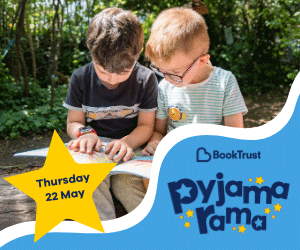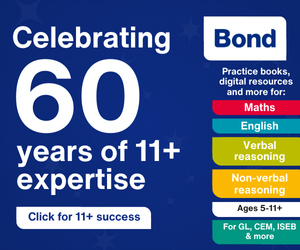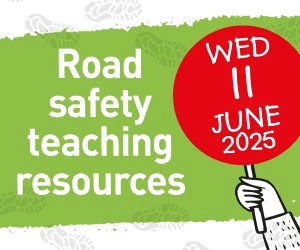Primary Times - the definitive what’s on and where to go family guide of activities and events for children of primary school age. Things to do with your kids during the school holidays including arts and craft activities, music and theatre for children, parties, competitions, days out, and family attractions along with term time drama schools, dance classes, after school clubs and sports activities. Things to do at a place near you!
ABRSM’s ‘Classical 100’, a free online resource bringing classical music to primary schools, launches nationwide for first time on 22 February 2016
 Teachers in primary schools across the whole of the UK will be able to ignite their pupils’ enthusiasm for classical music with a free online resource, Classical 100, which will be available for the first time in Scotland, Wales and Northern Ireland on 22 February, following the resource’s successful launch in England in November.
Teachers in primary schools across the whole of the UK will be able to ignite their pupils’ enthusiasm for classical music with a free online resource, Classical 100, which will be available for the first time in Scotland, Wales and Northern Ireland on 22 February, following the resource’s successful launch in England in November.
Complementing existing teaching resources, Classical 100 has been developed by ABRSM in partnership with Classic FM and Decca Classics and with the support of the Department for Education.
Schools across the whole of the UK can gain full, free, unlimited access to Classical 100 from 22 February by registering at www.abrsm.org/classical100.
Classical 100 is built around 100 recordings of classical music pieces which teachers can draw upon in lessons, school assemblies and other school activities. Alongside a recording of each of the works taken from Decca’s world-renowned catalogue, there is information about the composer and the story behind the music. ABRSM will also draw on its network of primary school experts to create and publish a range of downloadable materials on the resource throughout the academic year, thereby helping teachers to bring the music to life in the classroom.
Classic FM’s Aled Jones, musician, broadcaster and father of two, has welcomed the initiative, saying: “Classical music can be the richest and most emotionally fulfilling thing in the world for many people and it’s important that children can hear and explore it in imaginative ways from an early age. Classical 100 is a wonderful collection of some of the treasures of classical music and will hopefully help open doors to a lifetime of listening for a new generation.”
To encourage pupils to explore, discover and listen to music – and ultimately to develop their own personal interests, tastes and talents – the 100 pieces embrace a rich diversity of styles ranging over ten centuries, (from Hildegard of Bingen to Graham Fitkin via JS Bach, Beethoven, Brahms, Mozart, Tchaikovsky and more) and can be sorted according to a variety of criteria, such as mood, genre, country of origin or even when they were written.
Teachers can use the flexible resource to raise the energy levels by selecting Bernstein’s ‘Mambo’ from West Side Story, or encourage a moment of quiet reflection with Beethoven’s ‘Moonlight’ Sonata; if a class were, for example, exploring story-telling, the teacher could draw together multiple resources around Prokofiev’s Peter and the Wolf.
Introducing Classical 100, Michael Elliott, ABRSM’s Chief Executive, said:
“Classical 100 is a listening resource, an approachable starting point that brings together an amazing collection of music in a format that is designed to be helpful. Each and every piece included in the resource is designed to awaken the listener’s curiosity, encouraging further exploration of the rich and varied world of music.
Listening is, of course just the start and with colleagues in schools, music services and the broader music education sector working together, Classical 100 will play its part in opening the door onto the world of making, performing, exploring and enjoying music in all its forms.
Classical 100 exemplifies ABRSM’s commitment to high quality music-making and learning and is representative of a new generation of digital resources. We all want to make a child’s first experience of music magical, the beginning of a rich and varied life-long journey.”
Speaking for Classic FM, Sam Jackson, the station’s Managing Editor said:
“At Classic FM, we want to help everyone discover and enjoy classical music. Our aim is to make classical music accessible and relevant to people’s lives, no matter what their age, gender or demographic. We’ve seen a big increase in younger listeners in recent years and now with Classical 100, we’re looking forward to introducing children around the country to the joys of classical music.”
Schools Minister Nick Gibb said:
“At the heart of this government’s commitment to extending opportunity is a belief that all pupils should have access to an excellent, well-rounded education – music is a key part of this. Music shouldn’t be the preserve of a privileged few. All children should have the opportunity to hear and appreciate the work of great composers and musicians.These imaginative new resources, developed by experts in music education, will help schools introduce a new generation to the wonders of classical music.”
In England, Wales and Northern Ireland, Classical 100 can be used to meet the National Curriculum’s Key Stage 1 criteria of ‘listening to, reviewing and evaluating music across a range of historical periods, genres, styles and traditions, including the works of the great composers and musicians’. For example, if a teacher wanted to exemplify the Romantic period, it would lead them to a list including Tchaikovsky’s 1812 Overture or if they were exploring Choral music they could discover Handel’s ‘Hallelujah’ Chorus from Messiah.
In Scotland Classical 100 can be used to meet some of the First level outcomes of Curriculum for Excellence being an appropriate resource particularly for EXA 1-19a, ‘I have listened to a range of music and can respond by discussing my thoughts and feelings’. For example, if a teacher wanted to exemplify music of a gentle, calm mood, Classical 100 would lead them to a list including Grieg’s ‘Morning Mood’ from Peer Gynt Suite, or if they were exploring energetic, dramatic music they could discover ‘O Fortuna’ from Orff’s Carmina Burana.
Since launching in England in November, Classical 100 has received wide praise from media commentators, educators and musicians alike. 2,508 teachers in 1,830 English schools, with users logging in over 7,074 times and counting. The most listened-to piece is currently Bernstein’s Mambo, and ‘Story-telling’ remains the most popularly selected option with which to sort pieces.
Tom Lydon, commissioning editor for Rhinegold Education, writes:
“The ABRSM has pulled off something of a coup with its Classical 100 app…and in collaboration with Decca and Classic FM, have created something really exceptional.”
“The possibilities are endless!” says Jane Harris, Year 6 teacher at St.Charles Primary School, London. “It’s a really user-friendly resource for teachers. I love the selection of pieces, they’re really well thought out! There are some well-known pieces as well as some that aren’t as well-known. It can build help children build their understanding of what was going on at different times of history.”
The pieces of music were selected using Adaptive Comparative Judgement (ACJ) technology working in partnership with education tech provider, Digital Assess. The use of ACJ allowed the music to be judged and ranked according to its suitability for classroom scenarios using iteration and an adaptive algorithm.
|
|
Tweet |




